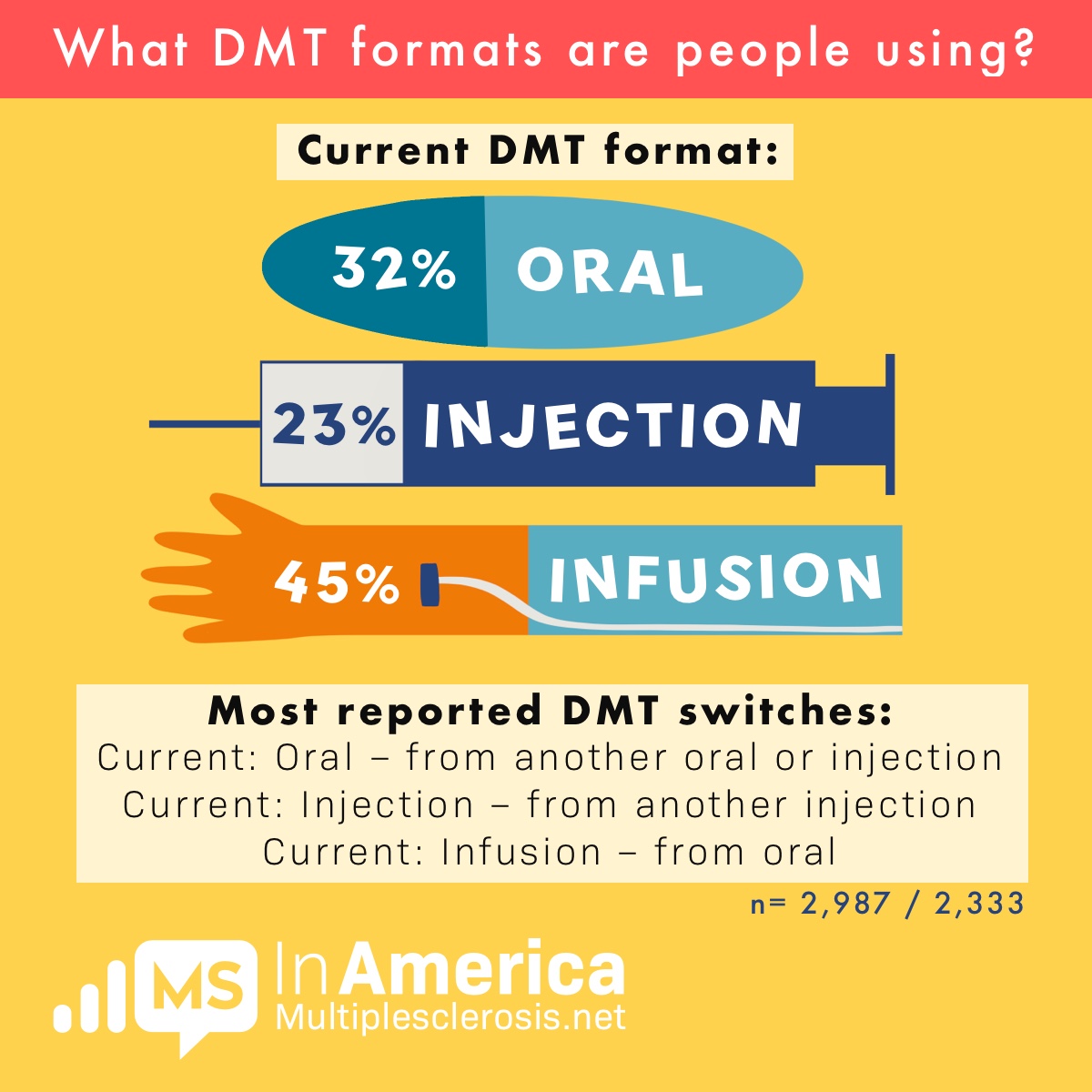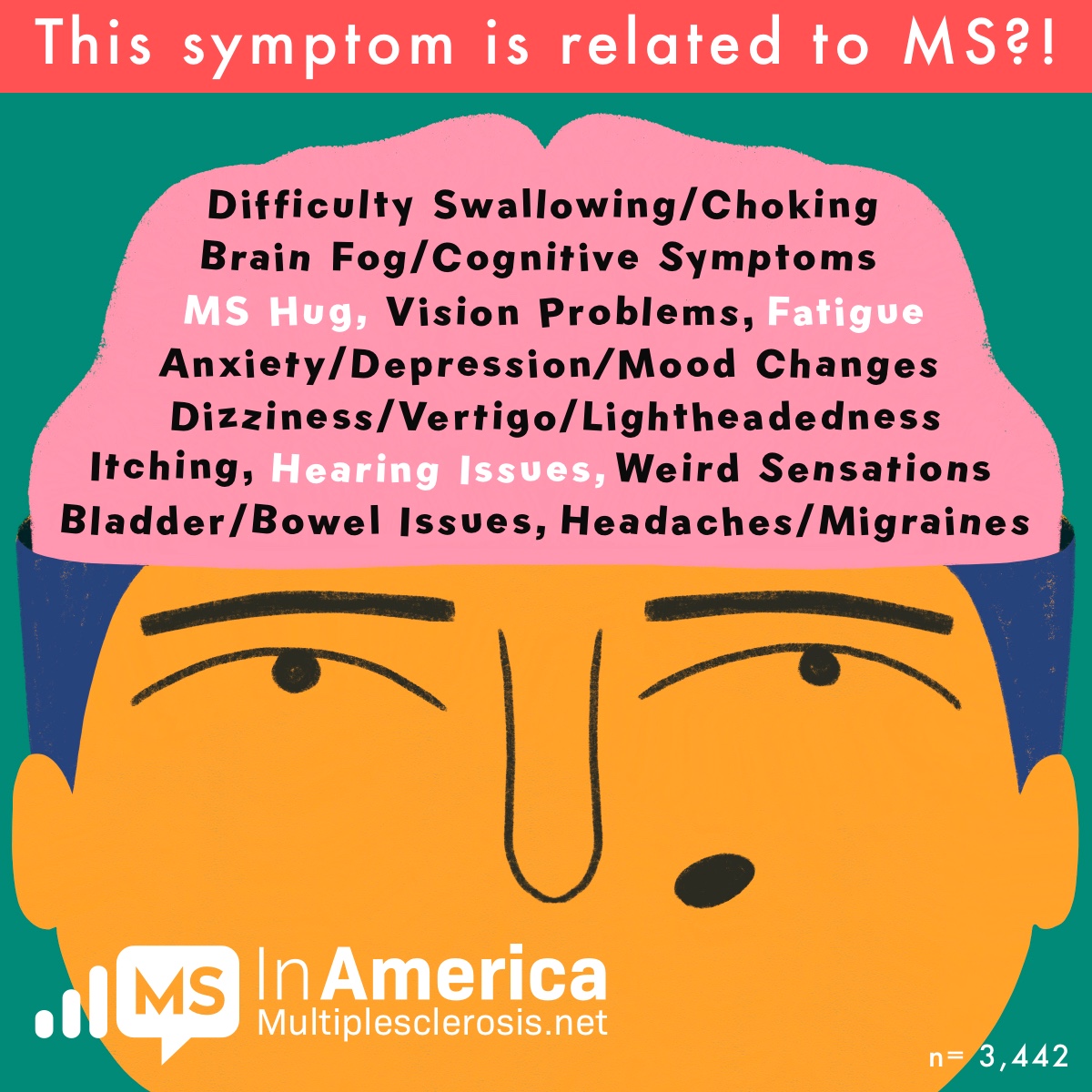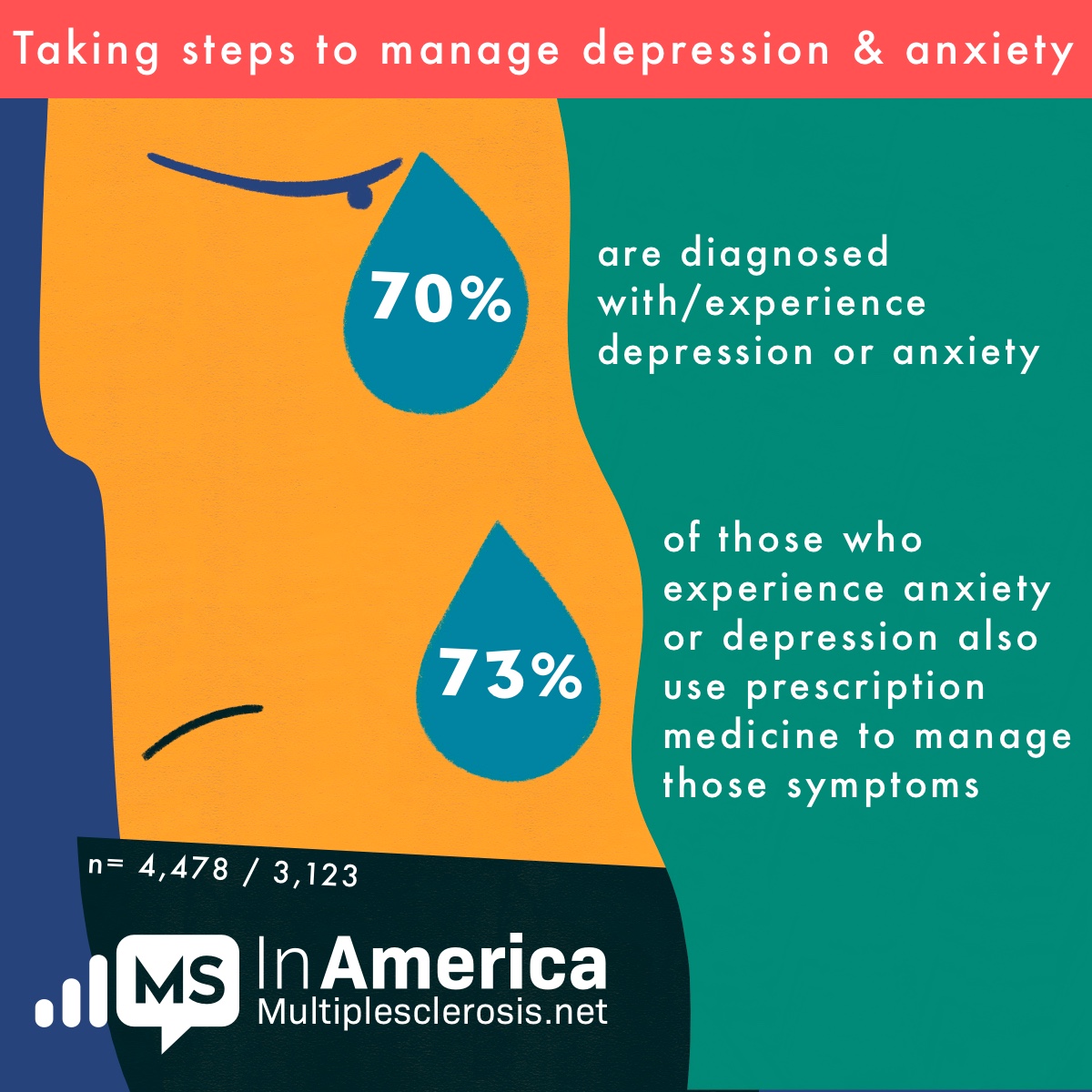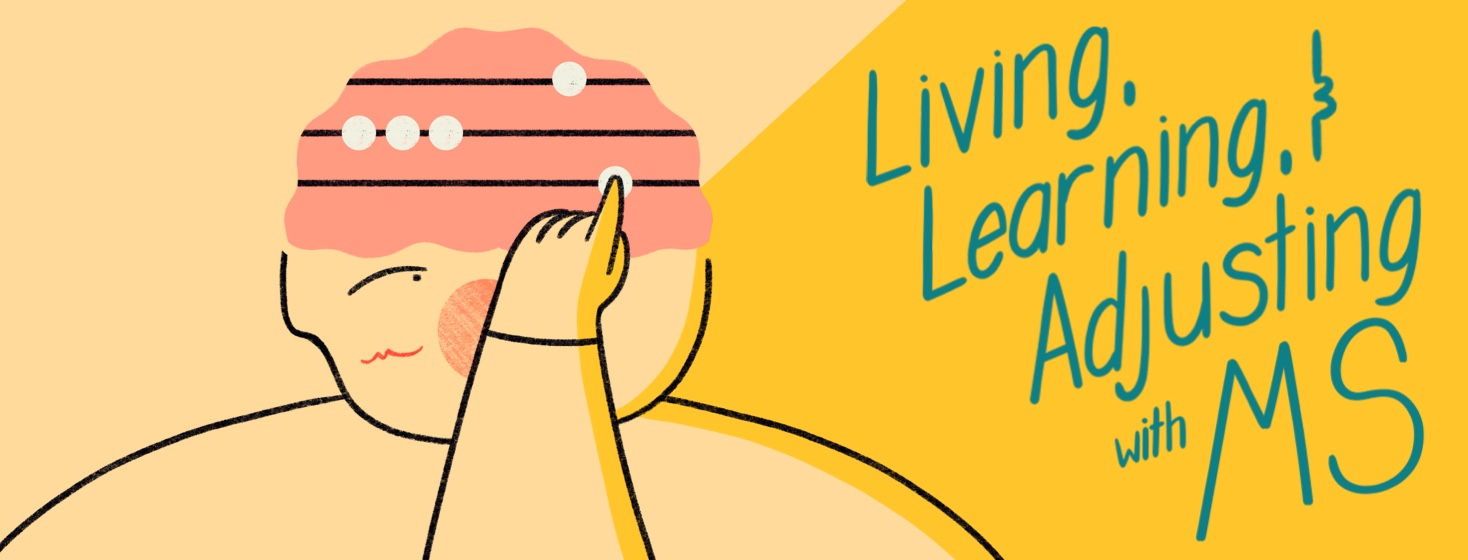Living With MS: It’s a Lot of Learning and Adjusting
The best way to learn what it’s really like to live with multiple sclerosis (MS) is to hear from people who are living with the disease on a daily basis! We conducted our 10th MS In America Survey, and it was completed by more than 4,400 people living with MS. We gather information and experiences on topics including diagnosis, quality of life and relationships, symptom management, interactions with healthcare providers, treatment usage, and more.
If there’s one thing that’s clear through our survey results, it’s that people living with MS are resilient! While they are faced with a variety of obstacles related to their health and daily living, they lean on their internal strength, support systems, and healthcare team to live life to its fullest potential. It’s a lot of learning and adjusting along the way!
Using and switching DMTs
There are many decision points when it comes to MS treatment. Do I want to start a disease-modifying therapy (DMT)? Which DMT is right for me? While patients have their healthcare team to guide them in their decision, many often do their own research about treatments. Often, someone will start on a DMT and eventually switch due to preference, a change in results, or health-related issues. Our survey respondents shared their DMT experiences:

Understanding MS symptoms
MS symptoms can significantly range in type and severity. They also often change over time. People living with MS can find themselves guessing which symptoms are related to MS or are related to something else. Survey respondents shared symptoms they didn’t realize were related to MS until they spoke with a healthcare provider or other people with MS. With more knowledge about their symptoms, they can ask better questions and seek more effective treatment!

Managing depression and anxiety
Many who live with chronic illnesses are no strangers to depression and anxiety, including those living with MS. If you are experiencing these symptoms, please know you’re not alone. In fact, the majority of survey respondents reported they are as well. Once these feelings are identified, it’s important to talk to your doctor about them to see if medicine may be able to help. Many of our survey respondents have added prescription medicine to their treatment plan to help manage their depression and anxiety.

The 10th MS In America Survey was conducted online from March 2022 through June 2022. The survey was completed by 4,478 people.

Join the conversation